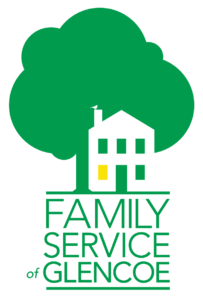Reflections on July 4, 2022 and Navigating the Timeline for Recovery from a Traumatic Event by Emily Mysel, LCSW
So many in our community have a story or a connection to July 4, 2022. I can’t believe it has almost been a year since the shooting at the Highland Park July 4th parade. For me, it started off like any other 4th of July morning; a day off from work and celebrating with my family. As a North Shore resident and clinician, the events of that day impacted me both personally and professionally.
I was headed to Deerfield Days to meet my husband and sons. On my way, I received a group text from friends attending the Highland Park parade that something terrifying had occurred. I remember that I froze and asked myself, “How can this be true?” I quickly ran to locate my family and head for home.
Once we got settled, my first calls were to the police social workers in Highland Park and Deerfield, and after that I called Glencoe Public Safety. FSG participates in a multi-community crisis response network, and as an FSG crisis clinician, I’m often called to crisis situations to help de-escalate, support, and console. This time was different. This crisis touched me, my family, my friends, and my community. I wanted to help, so I encouraged them to let me know what they needed.
While I waited to be called in, I was restless sitting at my house and was eager to be called in to assist community members and first responders. When I got the call, I arrived unsure how I could be useful or how I would be able to manage an event of this scale. Sometimes, we don’t know how strong we are until it’s the only option we have. I spent the afternoon and evening at the police department providing emotional support, referrals, resources, and food to the first responders, individuals, and families.
In reflection, I still struggle to make sense of this event. It altered many of our lives, and each one of us has processed it differently. As individuals, we respond, support, and engage differently after an identified traumatic experience occurs. The feelings associated with grief, loss, fear, pain, angst, and sadness can ebb and flow. Furthermore, the healing process can be complicated and not always linear.
Even as the immediate pain and loss subside, July 4, 2022 will always be imprinted in my mind and my heart. That day connected us and forever changed us. Whatever your story includes about this day, please know you are not alone. We all are linked together and continue to reflect and navigate through our thoughts associated with that day. Take time to reflect, to cry, to name your feelings, and to do something kind for yourself and others.
Do what feels best on how to acknowledge this holiday. For me, that means participating in the Memorial Walk as an on-scene clinician. I’ll be there lending my expertise, and my ear, to anyone who needs support as they participate in their own healing process. It will be different from my usual 4th of July family tradition. Your traditions may look different this year, too, and that is okay. Be understanding and accepting of your own needs and other people’s choices, because we all have a threshold of how much we can individually manage. Show compassion and empathy toward yourself and others. The healing journey can be complicated and complex. I recognize this year’s events may cause a variety of emotions for me, so I will try to take deep breaths when I can, share with someone how I feel, and soak in how far we have come in the past year on the path to healing and becoming more resilient.
